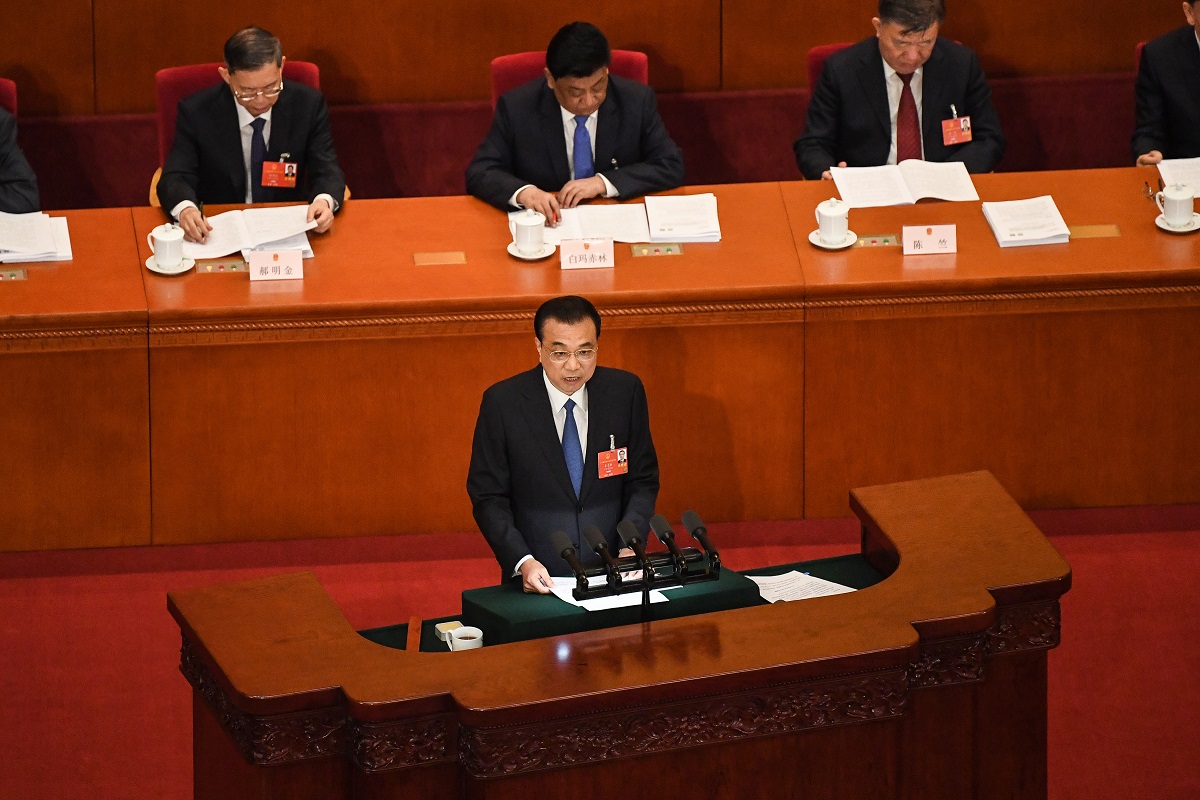China will propose a national security law for Hong Kong in response to last year’s violent pro-democracy protests that plunged the city into its deepest turmoil since it returned to Chinese rule in 1997, according to the media report on Friday.
The proposal, which has been condemned by the United States and Hong Kong pro-democracy figures as an assault on the city’s freedoms, was tabled on the opening day of the week-long National People’s Congress, Xinhua news agency reported.
On Thursday, Parliament spokesman Zhang Yesui said the chamber would consider a proposal for security legislation in Hong Kong.
In a state-of-the-nation speech opening China’s annual parliamentary session on Friday, Premier Li Keqiang said only that China would “establish and improve the legal systems and mechanisms to safeguard national security” in Hong Kong.
The South China Morning Post newspaper, citing unnamed sources, said the laws would ban secession, foreign interference, “terrorism” and all seditious activities aimed at toppling the central government and any external interference in the former British colony.
Earlier in the day, Taiwan’s government urged China not to lead Hong Kong into “bigger turmoil” with the proposed new national security legislation.
Taiwan’s Mainland Affairs Council said in a statement that China’s Communist Party had wrongly blamed external influences and Hong Kong independence “separatists” for the instability in the territory
The massive violent protests in Hong Kong started last year in June against proposals to allow extradition to mainland China, a move many feared would undermine the city’s judicial independence and endanger dissidents.
The controversial China extradition bill was withdrawn in September 2019 but the movement has morphed into a wider campaign for greater democracy and against alleged police brutality.
(With inputs from agency)











